Women World

How can women overcome gender bias in the startup world ?
Gender bias is a pervasive issue in many industries, including the startup world. Women face unique challenges when it comes to funding, networking, and building their businesses. However, there are strategies that women can employ to overcome these obstacles and thrive in the startup world. Here are some tips: 1\. Build a Strong Network: Networking is crucial for any entrepreneur, but it's especially important for women who may not have as many natural connections in the industry. Attend industry events, join professional organizations, and connect with other entrepreneurs on social media. Make sure to diversify your network by seeking out people from different backgrounds and perspectives. 2\. Develop Your Skills: Take courses or attend workshops to develop your skills in areas such as finance, marketing, and management. This will not only make you a more well-rounded entrepreneur but also demonstrate your commitment to learning and growing. 3\. Be Confident and Assertive: Women are often socialized to be polite and deferential, which can sometimes hold them back in business settings. Practice being confident and assertive in meetings and negotiations. Remember that you deserve to be taken seriously and that your ideas and opinions are valuable. 4\. Seek Out Mentors and Advisors: Find mentors or advisors who can offer guidance and support as you navigate the startup world. Look for people who have experience in your industry and who share your values and goals. 5\. Leverage Your Strengths: Women often bring unique strengths to the table, such as empathy, collaboration, and creativity. Emphasize these qualities in your pitches and marketing materials, and don't be afraid to highlight how they set you apart from your competitors. 6\. Stay Persistent: Starting a business is hard work, and there will inevitably be setbacks along the way. Stay persistent and focused on your goals, even when faced with rejection or failure. Remember that every challenge is an opportunity to learn and grow. 7\. Advocate for Yourself and Others: Speak up about issues of gender bias and inequality whenever you see them. Use your platform to advocate for change within your industry and support other women who are facing similar challenges. By working together, we can create a more equitable and inclusive startup world for all entrepreneurs.

Can women play professional football ?
**Can Women Play Professional Football?** The topic discusses the possibility and reality of women playing professional football. It starts with a historical perspective, highlighting the early days when women were not allowed to participate in football due to societal norms and gender roles. However, the first recorded women's football match took place in 1895, despite opposition from male-dominated football associations. The development of women's football is also discussed, with the establishment of the Women's World Cup in 1991 marking a significant milestone for the sport. Professional leagues such as the National Women's Soccer League (NWSL) in the United States have provided opportunities for female players to earn a living through football. The skill and talent of female footballers are emphasized, stating that they possess the same level of skill and talent as their male counterparts. Many women have showcased their abilities on the world stage, earning recognition and respect from fans and peers alike. However, the topic also highlights the challenges faced by women in football, such as unequal pay and limited resources compared to men's teams. There is a need for continued advocacy and awareness to ensure that women's football receives the same level of attention and investment as men's football. In conclusion, women can indeed play professional football. They have demonstrated their skills and talents on various platforms, including international competitions like the Women's World Cup. While there is still room for improvement in terms of equality and resources, it is clear that female footballers are capable of competing at the highest level of the sport.

How do cultural differences impact the experiences and opportunities for women around the world ?
Culture plays a significant role in shaping the experiences and opportunities for women around the world. It influences their roles, rights, and responsibilities, often leading to disparities in their access to education, healthcare, economic opportunities, and political representation. In this discussion, we will explore how cultural differences impact women's experiences and opportunities globally. Access to Education: Western cultures generally promote equal access to education for both genders, while traditional societies may prioritize male education over female, limiting women's opportunities. Developed nations offer quality education with diverse subjects including STEM fields, while developing nations often lack resources, resulting in fewer educational options for women. Reproductive Rights: Progressive cultures provide comprehensive reproductive health services, while conservative cultures may restrict access to contraception and safe abortion services. Industrialized countries have advanced medical facilities and prenatal care, while rural areas lack adequate healthcare infrastructure, increasing maternal mortality rates. Workforce Participation: Liberal societies encourage women's participation in various sectors, while patriarchal societies limit women to specific roles, reducing their economic potential. The Global North has legislation promoting wage equality, while the Global South often faces significant gender pay gaps due to cultural norms. Voting Rights: Democratic nations guarantee universal suffrage regardless of gender, while authoritarian regimes may restrict women's right to vote or run for office. Developed nations see an increase in female political leaders, while traditional societies rarely see women in high-level political positions due to cultural barriers. Marriage and Family Life: Western cultures promote marriage based on mutual consent and partnership, while arranged marriage cultures may limit women's choice in spousal selection. Dress Codes and Personal Freedom: Liberal societies allow individual expression through clothing choices, while restrictive cultures impose strict dress codes on women, limiting personal freedom. Addressing these disparities requires global efforts towards promoting gender equality and respecting human rights across all cultures.

Can you identify any international sports events that have taken significant steps towards achieving gender parity among competitors ?
The text discusses the growing emphasis on achieving gender parity in sports, highlighting significant steps taken by various international sports events towards this goal. It mentions the Olympics' strides in ensuring equal participation and medal distribution for men and women, FIFA's establishment of the Women's World Cup and increased investment in women's football, tennis Grand Slams offering equal prize money and television coverage for both genders, and the Rugby World Cup's efforts to promote women's rugby and implement gender equality policies. The text concludes that these initiatives demonstrate a commitment to creating a more equitable playing field for all athletes, regardless of gender, acknowledging that there is still work to be done.
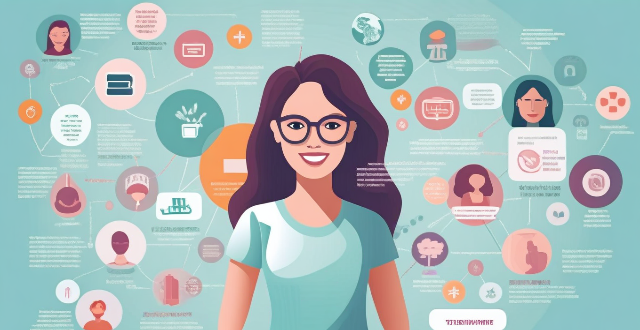
What is the role of technology in promoting women's welfare projects around the world ?
Technology has significantly impacted women's welfare projects worldwide. It has enhanced access to education, empowered women through digital entrepreneurship, improved healthcare services, promoted gender equality and women's rights, and facilitated financial inclusion. Technology has opened up new opportunities for women to lead fulfilling lives and contribute positively to society.

In what ways does education empower women socially and politically ?
Education is crucial for women's empowerment, enabling them to challenge societal norms and contribute more fully to society. It fosters increased awareness, improved socioeconomic status, and enhanced social relationships. Education also leads to greater political participation, policy influence, and promotion of gender equality. Overall, education enriches society by improving the lives of women and contributing to a more equitable world.
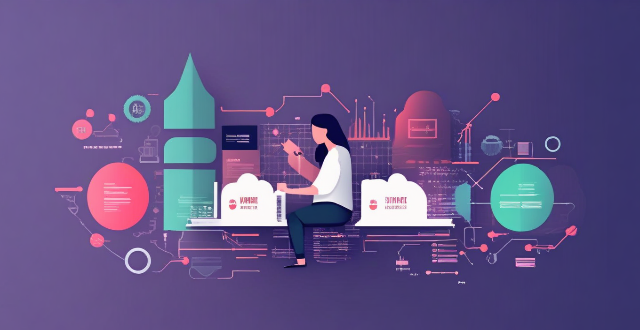
How do women-specific NGOs measure their impact on reducing poverty and inequality ?
This article explores how women-specific NGOs measure their impact on reducing poverty and inequality by focusing on key metrics such as economic empowerment, education and skill development, health and well-being, and gender equality and empowerment. It also highlights successful NGOs like Women's World Banking, Room to Read, and International Planned Parenthood Federation (IPPF) that use data collection tools to track progress towards their goals.

What are some examples of successful women athletes breaking gender stereotypes in sports ?
Throughout history, women have faced numerous challenges and stereotypes in the world of sports. However, many successful female athletes have shattered these stereotypes and paved the way for future generations of female athletes. Here are some examples: 1. Serena Williams - Tennis 2. Simone Biles - Gymnastics 3. Ronda Rousey - Mixed Martial Arts (MMA) 4. Mia Hamm - Soccer 5. Katarina Johnson-Thompson - Heptathlon

Why is it important to address violence against women as a human rights issue ?
Violence against women is a widespread problem that violates basic human rights and has far-reaching consequences for individuals, families, communities, and society at large. Addressing violence against women as a human rights issue is essential for upholding these basic rights, promoting gender equality, breaking the cycle of poverty and marginalization, and fulfilling our legal obligations under international law. By raising awareness about this issue and working towards creating a world where all individuals can live free from fear and violence, we can help create a more equitable and just society for all.

How does climate change disproportionately affect women in developing countries ?
Climate change disproportionately affects women in developing countries due to socio-economic factors, cultural norms, and division of labor. Impacts include reproductive health issues, nutritional deficiencies, loss of traditional occupations, increased workload, water scarcity, and energy poverty. Adaptation and mitigation efforts should involve women in decision-making and build their capacities. Gender-sensitive policies and interventions are needed to address these challenges and promote a more equitable future.
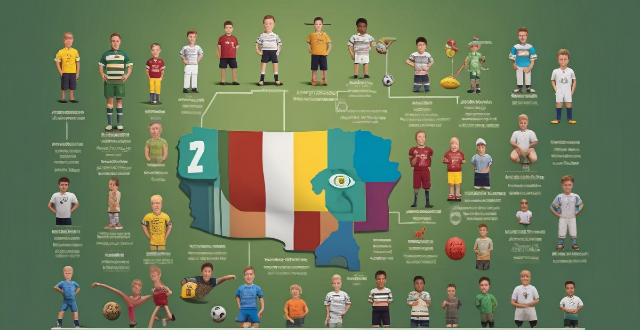
Which country has won the most FIFA World Cup titles ?
The country that has won the most FIFA World Cup titles is Brazil, with a total of five (5) titles. The Brazilian national football team is widely considered one of the most successful in the history of the sport. Other countries that have achieved significant success in the World Cup include Germany, Italy, Argentina, and Uruguay.

What challenges do women face in achieving scientific literacy, especially in developing countries ?
Scientific literacy is crucial for individuals to understand and make informed decisions about the world around them. However, women in developing countries face numerous challenges in achieving scientific literacy due to various socio-economic and cultural factors. These include a lack of access to education, economic barriers such as poverty and limited job prospects, gender stereotypes and bias in teaching methods, family pressures and responsibilities like child marriage and household chores, inadequate infrastructure, and a technological divide. Overcoming these challenges requires concerted efforts from governments, educational institutions, NGOs, and communities to promote gender equality in science education. By addressing socio-economic barriers, changing cultural perceptions, improving infrastructure, and bridging technology gaps, we can create an environment where women can achieve scientific literacy and contribute fully to the advancement of science worldwide.

What are the benefits of having a higher level of scientific literacy among women ?
The article discusses the advantages of having a higher level of scientific literacy among women. It highlights how it leads to improved health outcomes, economic empowerment, environmental sustainability, social progress, and global impact. Women with strong scientific literacy are more likely to make informed healthcare decisions, pursue careers in STEM fields, engage in environmentally responsible behaviors, challenge traditional gender roles, and contribute to solving global issues. The benefits of enhancing women's scientific literacy are vast and far-reaching, making it a key component of our collective efforts towards creating a more equitable world where everyone has access to quality education and opportunities.
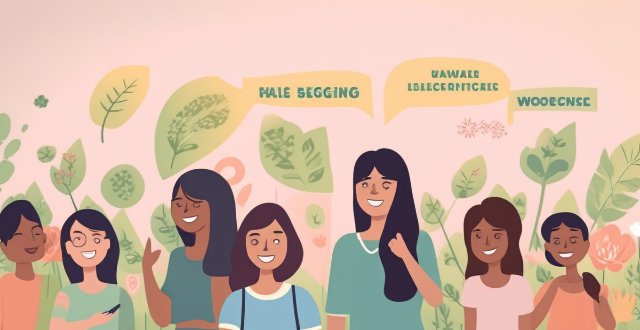
What are some successful women-led philanthropic projects that have made a significant impact in their communities ?
The article discusses several successful women-led philanthropic projects that have made significant impacts in their respective fields. These include The Malala Fund, which aims to empower girls' education globally; The Empowerment Center for Women in Saudi Arabia, which provides skills training and job opportunities for women; The Global Fund for Women, which supports grassroots women's groups worldwide; The Akilah Institute, which offers quality education and leadership training to young women in Zimbabwe; and The Women's Refugee Commission, which advocates for the protection of refugee women and children.

How have historical events impacted the acceptance and participation of women in various sports throughout time ?
The text discusses how historical events and societal norms have influenced women's participation in sports throughout history. In ancient civilizations like Greece and Rome, women were generally excluded from athletic competitions due to cultural beliefs and expectations about their roles. During the Middle Ages, their involvement remained limited, with some exceptions for practical purposes. The Industrial Revolution brought slight progress as leisure time increased, but gender stereotypes still hindered women's participation. Pioneering figures in the late 19th and early 20th centuries began promoting women's sports, leading to the inclusion of women's events in the Olympics. After World War II, there was a push for gender equality, including in sports, resulting in increased opportunities for female athletes. Today, while women participate in a wider range of sports than ever before, challenges such as unequal treatment persist, requiring continued advocacy for gender equity in sports.
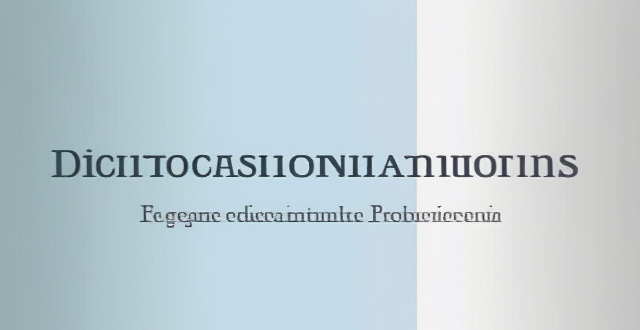
Are there any international laws that protect the rights of women ?
The text discusses international laws and conventions established to protect and promote women's rights, including the Convention on the Elimination of All Forms of Discrimination Against Women (CEDAW), the Inter-American Convention on the Prevention, Punishment and Eradication of Violence Against Women, the Maputo Plan of Action, the European Convention on Human Rights (ECHR), and the Beijing Declaration and Platform for Action. These legal frameworks aim to address issues such as discrimination, violence, gender equality, health care, education, and economic resources. The effectiveness of these laws often depends on national governments' commitment to implementing and enforcing them.

Why is it important for women to have a solid understanding of financial planning and wealth management ?
The importance of financial planning and wealth management for women is underscored by the need for financial independence, empowerment, and long-term stability. Women face unique challenges such as longer life expectancies and potential career interruptions, making it crucial for them to be financially savvy. Understanding key areas like budgeting, investing, insurance, and retirement planning can help mitigate risks and ensure economic security. Financial literacy is not just about managing money but also about gaining confidence, independence, and the ability to lead a fulfilled life.

How can women effectively manage their wealth ?
Managing wealth is crucial for women to achieve financial security. Tips include setting SMART financial goals, creating a budget, building an emergency fund, investing wisely, prioritizing retirement savings, and seeking professional advice. By following these steps, women can effectively manage their wealth and achieve their financial goals.

What are the common fertility issues faced by women ?
Fertility issues can be a sensitive and complex topic for many women. There are several common fertility problems that women may face, which can impact their ability to conceive and carry a pregnancy to term. These include ovulation disorders, endometriosis, uterine fibroids, tubal blockage, and age-related infertility. It's important for women who are struggling with fertility to seek medical advice and explore treatment options that best suit their individual needs and circumstances.

What resources are available for women looking to start their own business ?
Starting a business can be challenging, but women can turn their entrepreneurial dreams into reality with the right resources and support. Government programs and grants, non-profit organizations and foundations, online platforms and networks, and educational resources are all available to help women start their own businesses. These resources provide funding opportunities, training programs, networking events, specialized programs for minority and immigrant women, counseling and mentorship opportunities, access to free resources and workshops, and more. By utilizing these resources, women can gain the knowledge, skills, and support needed to successfully start and grow their own businesses.
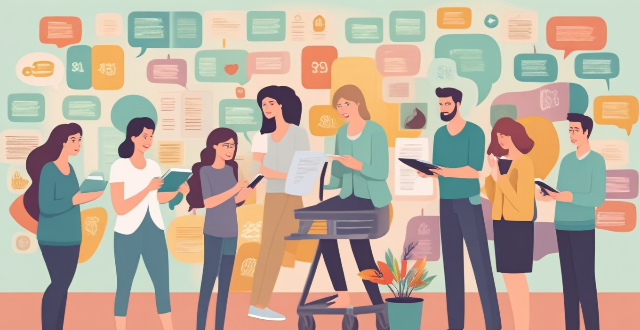
What are some resources available for women looking to advance their careers ?
There are many resources available for women looking to advance their careers. These include professional networking organizations, online courses and certifications, mentorship and coaching programs, workshops and seminars, books and literature, and online communities and forums. By utilizing these resources, women can gain valuable knowledge and skills, make connections with other professionals, and receive guidance and support in their career development.

Can you recommend some breathtaking yet less crowded hiking trails around the world ?
This guide recommends breathtaking yet less crowded hiking trails around the world, from the Sierra Nevada in California to the Himalayas in Nepal. It offers highlights and crowd avoidance tips for each trail.
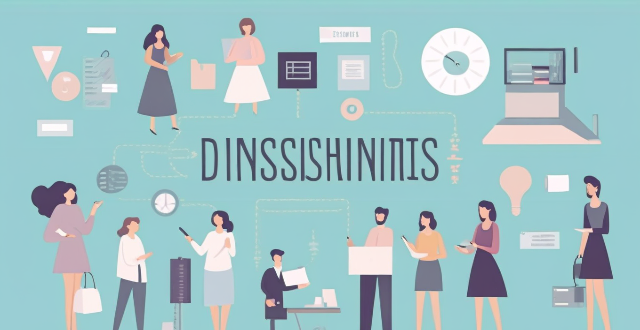
What measures have been taken to ensure equal pay for women in different industries ?
The text discusses the various measures taken to ensure equal pay for women in different industries. These include legislation, transparency and reporting, collective bargaining, education and awareness campaigns, gender bias training, promotion of women into higher-paying roles, performance evaluation reforms, and addressing occupational segregation. The conclusion states that achieving equal pay requires a multifaceted approach involving all these measures, and there is still much work to be done to ensure true gender equality in the workplace.

What is the role of the World Health Organization (WHO) in promoting global health ?
The World Health Organization (WHO) plays a crucialThe World Health Organization (WHO) plays a crucial by providing leadership, setting norm WHO's work is focused on improving health outcomes worldwide through various activities such as convening stakeholders, establishing international standards for health, generating scientific knowledge to inform policy decisions, providing technical support to countries, and monitoring global health trends.
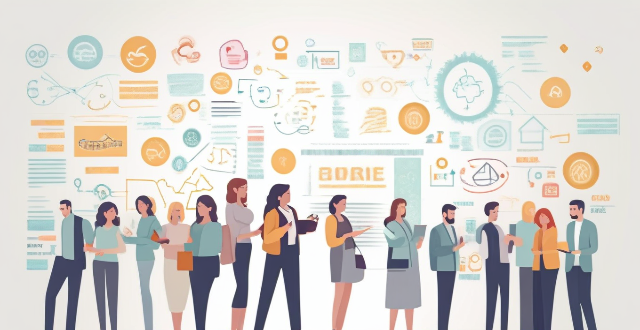
How can women build a diversified portfolio to minimize risks and maximize returns ?
The article provides a comprehensive guide on how women can build a diversified portfolio to minimize risks and maximize returns in the stock market. It emphasizes the importance of education, starting early, setting clear goals, diversifying investments across different asset classes, industries, and geographic regions, rebalancing regularly, and considering professional advice when needed. By following these tips, women can create a strong foundation for long-term financial success.

How can I get involved with women-focused charity work locally or internationally ?
Involving in women-focused charity work is a meaningful way to promote gender equality and empower women. This guide provides tips on how to get involved locally and internationally, including researching organizations, volunteering time, donating money or resources, attending events and fundraisers, fundraising for international organizations, participating in online campaigns, and traveling abroad to support women's issues. Additionally, it emphasizes the importance of being open-minded, building relationships, staying informed, and evaluating your impact to make the most of your participation.

How should women behave in a mixed-gender professional environment ?
Navigating gender dynamics in a mixed-gender professional environment requires women to exhibit confidence, professionalism, and foster positive relationships with colleagues. Key guidelines include speaking up, taking credit for achievements, dressing appropriately, conducting oneself with integrity, collaborating with colleagues, networking, challenging stereotypes, seeking feedback, supporting diversity, mentoring others, staying authentic, and pursuing personal growth. By following these principles, women can thrive professionally and contribute positively to the workplace culture.
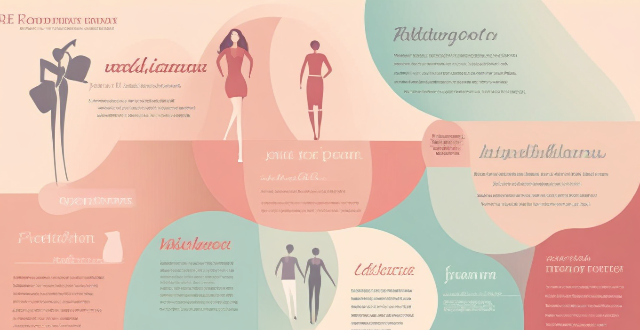
What advice would you give to women who struggle with managing relationships ?
Managing relationships can be challenging, especially for women juggling multiple roles. Effective strategies include open communication, setting healthy boundaries, practicing empathy, maintaining independence, resolving conflicts constructively, and continuous mutual growth. By adopting these approaches, women can enhance their relationship management skills and foster more fulfilling connections.

How can counseling help women dealing with infertility-related stress ?
Counseling is crucial for women dealing with infertility-related stress. It helps identify emotional distress, address mental health concerns, build resilience and coping strategies, navigate medical treatment options, and foster hope and healing. By providing emotional support and promoting self-care practices, counseling empowers women to face the challenges of infertility with strength and courage.
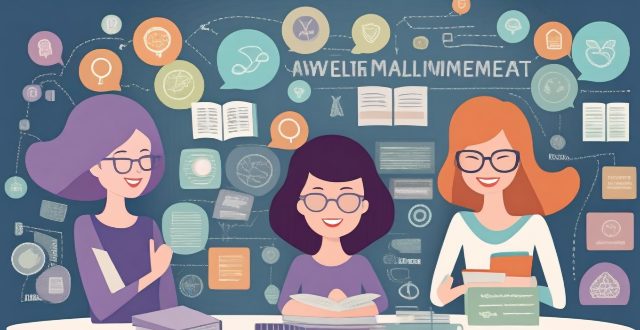
What resources are available to help women learn about wealth management ?
The text provides a summary of resources available to help women learn about wealth management. It mentions online courses and webinars, books, podcasts, and financial planners and advisors as some of the resources that can be used by women to gain knowledge and skills in wealth management. The resources are aimed at helping women take control of their finances and secure their financial future.